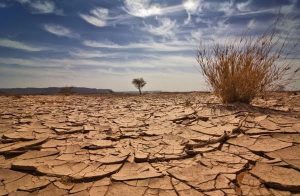By Toyosi Ayo-Bello
An improved cook stove has a high combustion quality, technical efficiency, minimal smoke emission, ergonomics and structural stability that meet technical, scientific and safety standards.
Improved cook stoves come in diverse forms and sizes. Improved Cook Stoves (ICS) can be designed and built in a variety of ways, depending on the confined situation. At their simplest, ICS make available an enclosed space for the fire to decrease the loss of radiant heat and shield it against the wind.
In addition, concentration can be specified to methods of controlling the upward flow of the combustion gases, so as to boost the transfer of heat to the cooking pot. A lot of these stoves are made of mud or clay in view of the fact that both are more or less free of charge and readily obtainable.
Cook stoves are normally used for cooking and heating food in developing countries. Households in Nigeria guzzle significantly more cooking energy than those in developed countries. A regular rural family unit spends 30 per cent or additional of its income buying wood or charcoal for cooking. The urban poor in addition commonly spend a considerable portion of their earnings on the procurement of wood or charcoal.
Cooking in excess over a traditional open fire can cause increased health complications brought on from the inhaled smoke, mainly lung and eye ailments, but also birth defects. The health tribulations associated with cooking using biomass in traditional stoves have an effect on women and children strongly, because they spend the majority of their time near the domestic open fire.
Replacing the traditional three stone cook stove by means of an improved one and venting the smoke out of the house all the way through a chimney can drastically improve a family’s health.
Deforestation and erosion over and over again result from harvesting wood for cooking fuel. The major goal of nearly all improved cooking stoves is to decrease the strain placed on local forests by plummeting the quantity of wood the stoves guzzle, and to lessen the harmful health impacts connected with contact to toxic smoke from traditional three stone stoves.
To succeed over the ‘Three Stone Fire’, the ICS aims to lessen cooking time through increasing efficiency, as well as, to make a smokeless atmosphere in the kitchen by reducing the volume of smoke emanation.
Improved stoves are fuel efficient, which means a lesser amount of money spent on fuel, or less time spent sourcing for fuel. On the other hand, it’s not straightforward to calculate fuel savings over time.
If coal or wood are bought in small quantities on an uneven basis, it is not palpable how much the yearly cost is. If wood is sourced rather than purchased, the expenditure is even harder to calculate approximately.
Women and children are normally the ones gathering firewood, which takes substantial time; that may perhaps be spent in school or running a trade. In conflict areas like the North-East of Nigeria, they are also in peril of brutality and sexual assault. Nevertheless, saving a woman’s time might not include an evident advantage in a patriarchal culture. Saving a child’s time may appear pointless.
The health benefits of using these stoves are not as direct as you’d think. On a macro-level, respiratory illnesses, cancer, asthma, and burns are fewer in communities that use improved cookstoves. Unsafe stove smoke is one of the World Health Organization’s top five threats to public health in poor, developing countries.
The WHO estimates that 1.9 million premature deaths are caused by indoor air pollution from traditional cook stoves globally, that’s about 93,500 deaths in Nigeria annually. That is a life lost every 45 seconds. On a family level, the health benefits of an improved stove are not noticeable.
Women habitually cook with babies strapped on their backs. Children in a family unit with an improved cook stove get less respiratory infections. Nonetheless, it’s not so many cases that would stand out – parents don’t routinely benchmark their children’s health.
“The WHO estimates that 1.9 million premature deaths are caused by indoor air pollution from traditional cook stoves globally, that’s about 93,500 deaths in Nigeria annually. That is a life lost every 45 seconds.”
There are also environmental benefits to improved cookstoves. Since improved stoves need less fuel, they lessen the burden on natural resources and reduce deforestation. According to the United Nations Environment Programme, inefficient cooking stoves are accountable for around 25 per cent of global emissions of black carbon. However, those environmental advantages have an aggregate impact, not one that is clear or even pertinent at the household level.
Recent interest in ICS majors on the “triple benefits” they offer, an improved health and time savings for families, in safeguarding the forests and connected ecosystem services, and in reducing emissions that add to global climate change.
In line with these, programs should aim at promoting ICS public education in rural areas based on disadvantages of using traditional cook stoves and advantages of using such stoves.
In addition it is suggested that encouragement of improved cook stoves usage ought to more often than not target areas where majority of the households purchase their fire wood or charcoal. This will guarantee high acceptance rates because such communities are aggravated to accept the new technologies by the fact that they will save on fuel costs. In rural areas where literacy levels are low, encouragement of improved cook stoves usage must be joined with adult education programs targeting the women.
Furthermore, carbon financing and social subsidies can help enhance incentives to take on, but that will not always be suitable. The costs and benefits of these technologies are most exaggerated by their relative fuel costs, time and fuel use efficiencies, cost of acute respiratory illness, and the cost of household cooking time.
Ayo-Bello’s background is predominantly in human resource management and academic research, but he has a keen interest in almost everything. He attended the University of Ghana where he developed interest in renewable energy, and currently writes for a living, on a broad variety of subjects. His articles are reposted frequently on other sites, views expressed are however his own.





